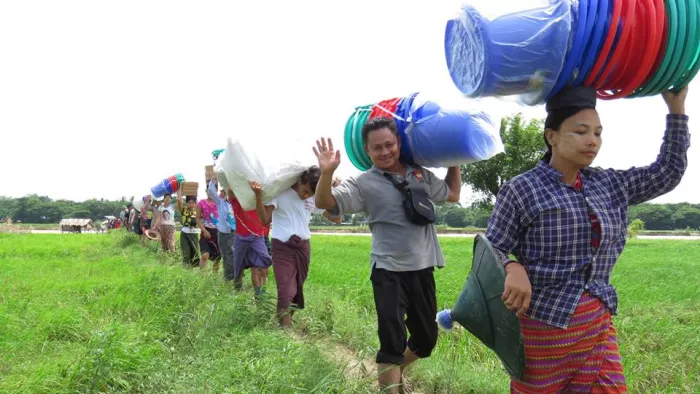ABOUT THE PROJECT
Major flooding events and flash floods in 2013 and 2014, and the planned construction of seven dams over various river courses (in addition to 13 other dams in upstream China), caused speculation that there may be more flooding in the future. Local response to crises was often complicated by the parallel governance mechanisms of the government controlled areas and areas controlled by non-state armed groups.
This project aimed to strengthen the links among national, subnational and local level preparedness in Myanmar. The primary focus was on strengthening the capacity of local communities and structures to access information and link with the preparedness and early warning systems in the country.
This empowered communities by enabling their access to forecast and early warning information, improving their capacity to utilise such information for crisis response and making decisions about their livelihoods. It also supported stronger ownership of and participation in local contingency planning, and better positioning of their frontline emergency response.
By working in partnership, coordinating and collaborating with multiple stakeholders, the project carried out multi-hazard risk assessments and technical inputs. And by creating an appropriate institutional and policy environment, the project ensured the sustainability of the outcomes.
AIMS
1. To ensure coordinated and coherent preparedness, plans need to be owned and led by local communities
2. To improve the system of joint planning, coordination and communication on preparedness, early warning and response between and among key stakeholders
3. To create a framework for scalable and replicable learning on preparedness planning and programming.
WHO WAS INVOLVED?
The project was delivered through a consortium led by Christian Aid; and included Danchurchaid, the Myanmar Government Agency for National DRR Action, and the Regional Integrated Multi-Hazar Early Warning System for Africa and Asia (RIMES).
WHERE DID THE PROJECT TAKE PLACE?
The project focussed on 50 villages in Southeast Myanmar, in the Southern Shan, Kayin and Mon states.
FUNDING
The three year project was funded with £945,698 from UK Aid, part of the Disaster and Emergencies Preparedness Programme (DEPP).
LEARNING
Learning review, output 1: How has Shifting the Power influenced local and national partner's response to emergencies?
Learning review, output 2: Increasing the voice and the influence of local and national NGOs
Protection Mainstreaming Training Package - English
Protection Mainstreaming Training Package - Urdu
To read more about the learning gained from the delivery of this project and other DEPP projects, please visit disasterpreparedness.ngo

